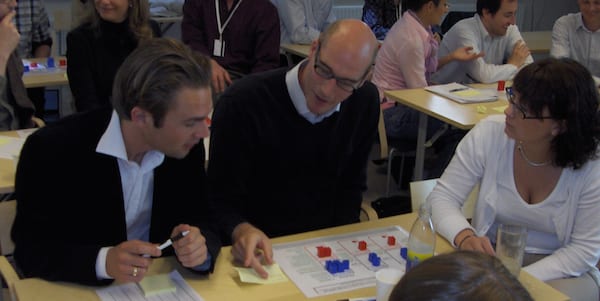
Coping with Covid-19: lessons from The Plague
COLUMN – With the Covid-19 pandemic spreading around the world, John Shook shares six ideas that are guiding him as 1.5 billion of us go into lockdown.
Words: John Shook, Chairman, Lean Global Network
Even though a pandemic has long been “predicted” this has still been a shock.
You have better sources than here to stay on top of what is happening, so I will spare you updates from me that would be less timely and authoritative than your usual sources. But I will share a couple of articles that have help ground my grasp of where we are.
The first, from Bill Gates of all people, who offered the first pronouncement that I read of Covid-19 as the pandemic that he has long warned was coming. And, more current and compelling and closer to “home” – wherever your home may be – this personal account by Dr. Daniele Macchini of Humanitas Gavazzeni Hospital in Bergamo, Italy. The story he relates of the struggle to keep up in the face of the onslaught of the sickness is reminiscent indeed of Dr. Rieux in Camus’s The Plague. As I have re-read the book, 45 years later, this strikes me as timely as it is profound:
“That’s an idea which may make some people smile, but
the only means of fighting a plague is—common decency.”
Aside from those references, what might I share that could be in the least useful or a little interesting? Recognizing that the global pandemic may truly change the world, here are some ways this novel coronavirus is impacting me, personally. I offer not in the spirit of solipsism, but of sharing in hopes (more on hope later) that sharing might help us feel connected when so many of us are isolating.
We – especially old people like me with histories of respiratory problems – are told to hunker down. Here are six thoughts I’m using to guide me toward more effective hunkering:
- Slow down – nothing like a forcing function to ensure we all practice what psychologists tell us we need to do, anyway. As for me, I am connecting on-line daily with my grandsons and others. And watching the early appearance of robins and cardinals. In the article's banner image, you can see a photo of one of my grandsons (with an online PokemonGo character) and one of my pantry stocked with canned goods that I ordinarily NEVER purchase. But ordinary times these are not.
- Be compassionate – any among of us may be spared significant suffering, now or over the coming months. I pledge to avoid that deep-down sense – gloating, really, in its essence – that this is just something that is happening to others; I am spared for the same reasons I was born healthy – I somehow deserved it. If it’s not gloating, it’s a moral complacency into which I refuse to fall.
- Be observant – just as deep observation leads to empathy (as happens when we observe work with respect in a factory), being humbly observant leads inexorably to compassion. If I am really paying attention, it’s impossible to avoid compassion. There will be a lot of suffering in the coming months. I will not close my eyes. As I practice social distancing, I have an eye on my neighbors, who have pledged to keep an eye on me.
- Be thoughtful – humble observation leads here, too. For me, anyway, the past few have been days of deep reflection to contemplate what’s happening, why, what it might mean to me and my loved ones. I am also compelled to think in order to decipher the massive amounts of distracting “information” – no more simple facts, please! To my astonishment, I have been pleased to hear some politicians explicitly distinguish between verifiable “facts” they present and their personal “opinions” and advice. Could this crisis lead to more clear-headed thinking in the public realm?!
- Think long term – the first point (slow down!) tends to naturally take us here. We don’t know the extent to which the Covid-19 crisis is a “this too shall pass” temporary bump – it may be much more – but this is not the end. Today, if we slow down, are we not naturally compelled to think of what really matters, what is important, where do we want to be, where do we want the world to be tomorrow?
- Take action today – for much of the population, like me, our first contribution is to stay at home in order to avoid contributing to health system overload. For the many who need to be out and about and even on the front lines of the battle, simple isolation is not an option. Efforts to mobilize on multiple fronts – from craftsman making masks to factories producing PPE – are inspirational, indeed!
Can we connect our day-to-day actions and musings to our long-term, ultimate even, aspirations? Never a better time than this to dream, for those of us fortunate enough to have mental and emotional space. Dr. Macchini has no time for idle dreaming. Where is the PPE, the ventilator, the caregiver? How is this patient faring and where is the next one? As he says, “The war has literally exploded and battle are uninterrupted day and night.” No time for musing.
Rarely are we humans compelled so powerfully to awareness of how we are all in the same boat. Can we be one human team? As Dr. Macchini says: “There are no more surgeons, urologists, orthopedists, we are only doctors who suddenly become part of a single to face this tsunami that has overwhelmed us.” Italy has been hit hard. Wuhan was caught unaware, forced to scramble. The USA is on the cusp. I am terribly fearful for Africa, when (not if) it hits there. Healthcare system(s) in Africa will NOT be able to cope.
For Camus, who like Dr. Macchini saw the fight against pestilence as war, “hope” was the enemy. The enemy of humanity. But, from where I sit today (I may sit somewhere else or lie prone tomorrow), hope embodied in action – such as displayed by Dr Macchini and countless caregivers and responders and families and friends around the world – is in itself medicinal. Is there more powerful medicine than to take caring action? To close again with Camus:
“All I maintain is that on this earth there are pestilences and there are victims, and it’s up to us,
so far as possible, not to join forces with the pestilences. That may sound simple to the point of childishness; I can’t judge if it’s simple, but I know it’s true.”
This article is being published concurrently on Planet Lean and on The Lean Post.
THE AUTHOR

Read more


FEATURE – Games can help you to engage people and communicate lean management principles. Here is a number of useful tips and suggestions on how to make training more… playful.


FEATURE – For this new monthly article, we will be asking five lean practitioners the same question and share their answers with you. We started by asking them about their biggest lean mistake.


FEATURE – We see the shortcomings of strategies based solely on financial metrics every single day. The author discusses how Lean Thinking offers an alternative that leads to better and more sustainable results.


FEATURE - In the second article in his series, the author provides helpful tips for those interesting in bringing some Lean Thinking to their parenting, focusing on the first five years of a child's life.

